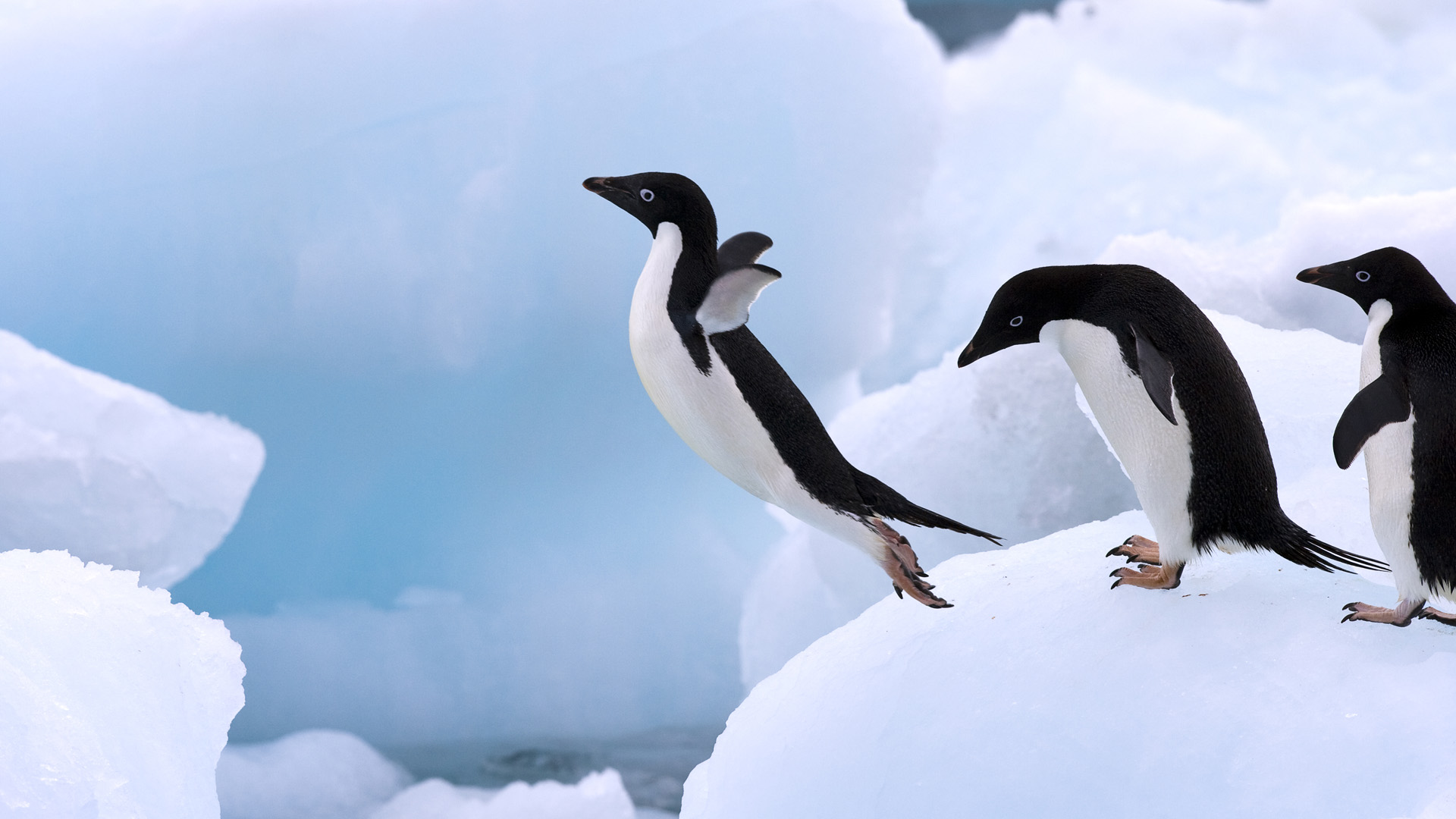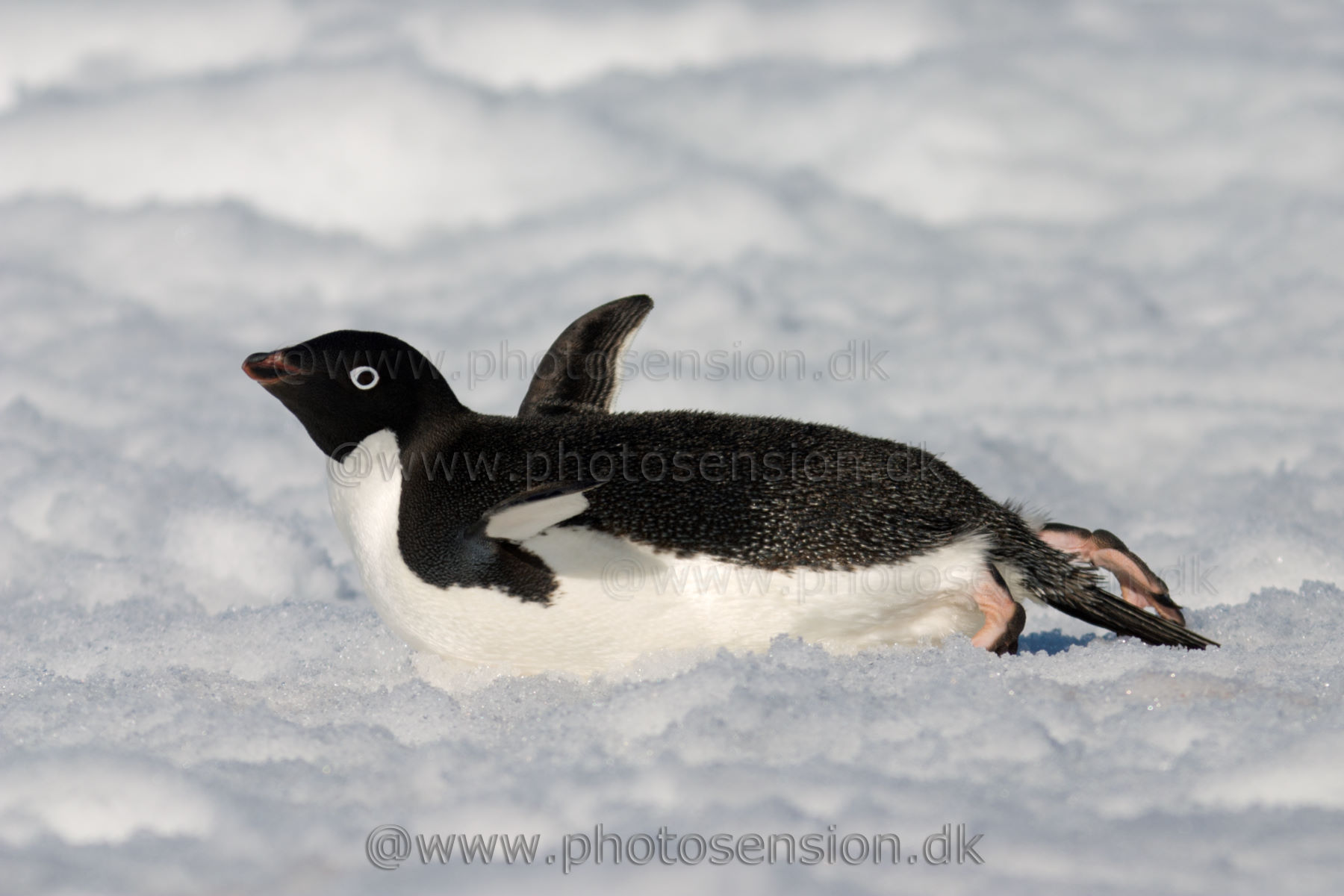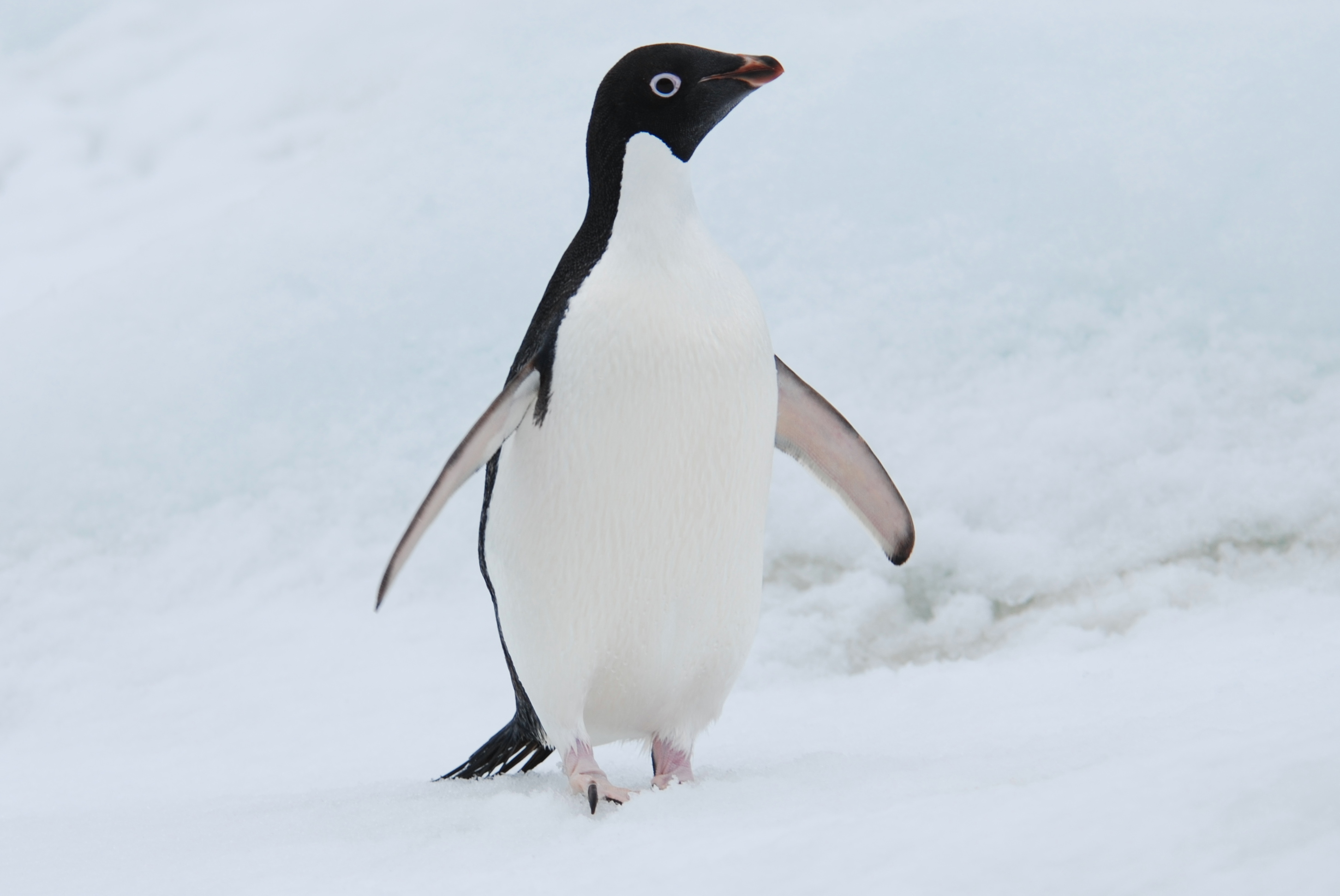Environment & Energy
Related: About this forumW. Antarctic Peninsula Adelie Penguin Colonies Down At Least 80% Since 1970
Climate has influenced the distribution patterns of Adélie penguins across Antarctica for millions of years. The geologic record tells us that as glaciers expanded and covered Adélie breeding habitats with ice, penguins in the region abandoned their colonies. When the glaciers melted during warming periods, the Adélie penguins were able to return to their rocky breeding grounds.
Now, a NASA-funded study by University of Delaware scientists and colleagues at other institutions reports that this warming may no longer be beneficial for Adélie penguins. In a paper published June 29 in the journal Scientific Reports, the researchers project that approximately 30 percent of current Adélie colonies may be in decline by 2060, and approximately 60 percent of the present population might be dwindling by 2099. They also found the penguins at more southerly sites in Antarctica may be less affected by climate change.
The study results suggest that changes in climate, particularly sustained periods of warmer than usual sea surface temperatures, are detrimental to Adélie penguins. While the specific mechanisms for this relationship remain unknown the study focuses attention on areas where climate change is likely to create a high frequency of unsuitable conditions during the 21st century. "It is only in recent decades that we know Adélie penguins population declines are associated with warming, which suggests that many regions of Antarctica have warmed too much and that further warming is no longer positive for the species,” said the paper’s lead author, Megan Cimino, who earned her doctoral degree at University of Delaware in May and is now a postdoctoral scholar at Scripps Institute of Oceanography in La Jolla, California.
The Adélie penguin is a species that breeds across the entire Antarctic continent. The penguins are experiencing population declines along the West Antarctic Peninsula, which is one of the most rapidly warming places on Earth. Conversely, Adélie populations in other areas of Antarctica where the climate is stable or even cooling remain steady or are increasing.
EDIT
https://www.nasa.gov/feature/goddard/2016/climate-change-may-shrink-adelie-penguin-range-by-end-of-century
longship
(40,416 posts)They are also acrobatic.

They scoot on their bellies across the ice.

And they are very attractive.

AWWWK!
jpak
(41,758 posts)Hectares of abandoned nests - and lots of colony fragmentation (not good - increases skua predation)
OKIsItJustMe
(19,938 posts)OKIsItJustMe
(19,938 posts)By contrast, the study also suggests several refugia—areas of relatively unaltered climate—may exist in continental Antarctica beyond 2099, which would buffer a species-wide decline. Understanding how these refugia operate is critical to understanding the future of this species.
“The Cape Adare region of the Ross Sea is home to the earliest known penguin occupation and has the largest known Adélie penguin rookery in the world,” Cimino said. “Though the climate there is expected to warm a bit, it looks like it could be a refugia in the future, and if you look back over geologic time it was likely a refuge in the past,”
The researchers reported that climate change impacts on penguins in the Antarctic will likely be highly site-specific based on regional climate trends, and that a southward contraction in the range of Adélie penguins is likely over the next century.
…